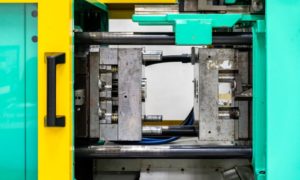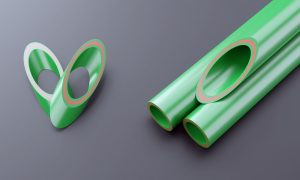In the manufacturing industry, material selection is critical to the success of any product. Engineers are constantly on the lookout for materials that offer the perfect balance of performance, cost-effectiveness, and versatility. Among those available, nylon is often the first choice. But why is nylon so common in machined parts? We’ll explore some of the reasons behind its widespread use in various industries.
The Unique Properties of Nylon
Due to its unique properties, nylon is frequently used in the manufacturing sector. Here are a few reasons businesses might choose this material for their products:
- Durability and wear resistance: Nylon is renowned for its exceptional durability and wear resistance, making it an ideal material for parts subjected to high levels of stress and friction.
- Lightweight yet strong: One of the most compelling reasons for choosing nylon is its high strength-to-weight ratio, allowing parts to be significantly lighter while maintaining excellent tensile strength.
- Chemical resistance: Nylon exhibits excellent resistance to a wide range of chemicals, including oils, solvents, and fuels. These properties make nylon suitable for use in harsh chemical environments where other materials might degrade or react adversely.
- Low coefficient of friction: Nylon’s low coefficient of friction reduces the wear and tear on both the machined part and the interacting surfaces, which is particularly beneficial in applications involving moving parts, such as gears, bearings, and bushings.
- Thermal stability: While nylon is not as heat resistant as some other engineering plastics, it does offer good thermal stability up to a certain temperature range, making it perfect for applications where moderate heat resistance is required.
Understanding the benefits and drawbacks of nylon will ensure you make an informed investment for your manufacturing needs.
Applications of Nylon in Machined Parts
Nylon’s lightweight, durable, and chemically resistant properties make it an ideal material for automotive components, including engine covers, air intake manifolds, gears, and bearings. It’s also often used in the aerospace sector, where the need for lightweight and strong materials is paramount. In addition, nylon’s versatility and aesthetic appeal make it a common material in various consumer goods, such as sporting equipment, household appliances, and outdoor gear.
Challenges and Considerations
While nylon offers numerous advantages, there are some challenges and considerations to keep in mind. Nylon is hygroscopic, meaning it absorbs moisture from the environment. This can lead to changes in its dimensions and mechanical properties. And because it tends to deform under continuous stress, applications requiring high dimensional stability over long periods may be better off using reinforced grades of nylon or alternative materials.
An Ever-Evolving Landscape of Possibility
Nylon is a common component in machined parts thanks to its unique combination of properties making it a popular choice across various industries. As the manufacturing landscape continues to evolve, nylon’s role in machined parts is likely to expand further, driven by ongoing advancements in material science and engineering.
If you’re looking for quality machined parts containing nylon, Miller Plastic Products is here to ensure you find the parts you need. Our replacement plastic gears are sure to improve the overall quality of your operations.




